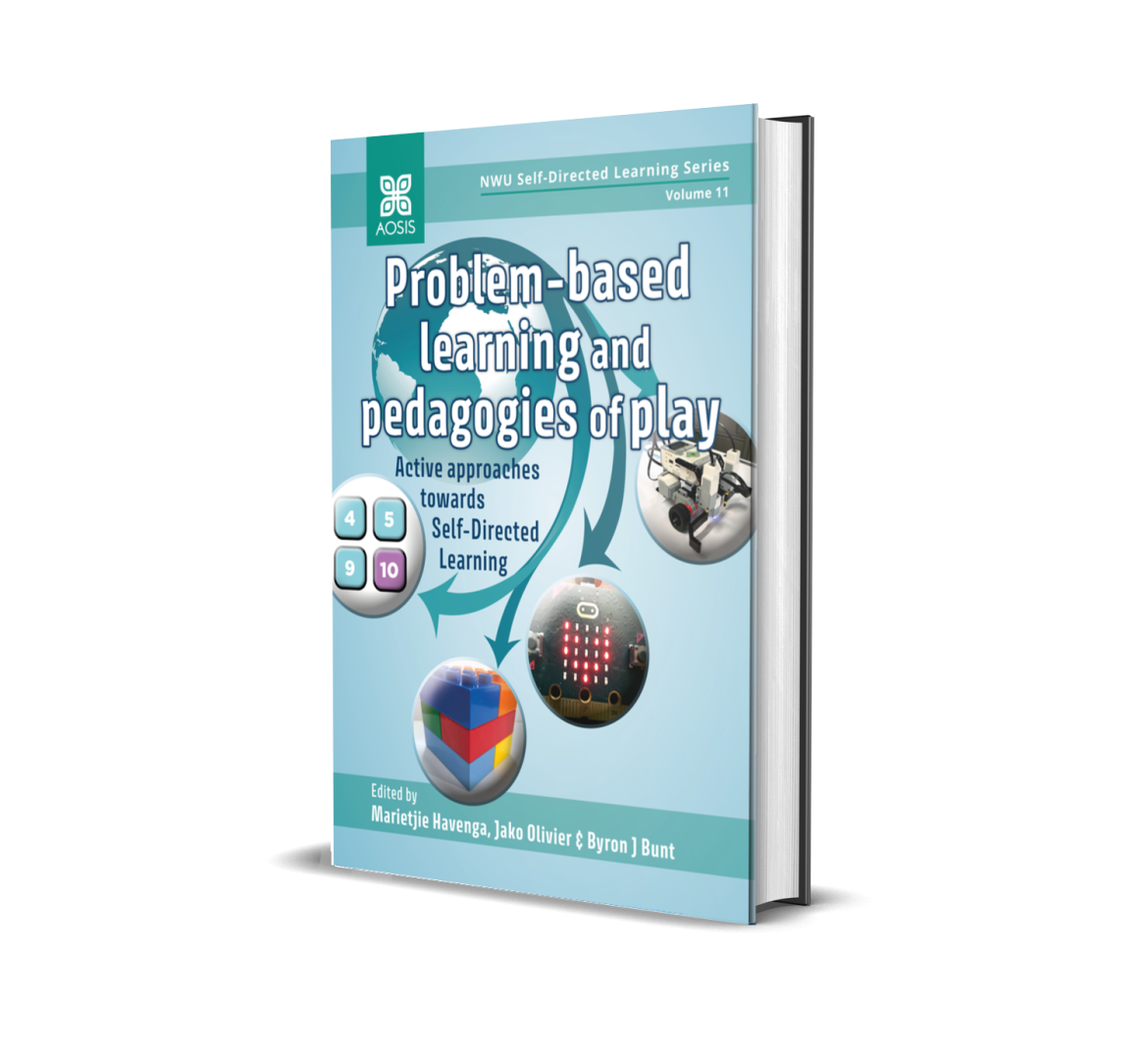Problem-based learning and pedagogies of play: Active approaches towards Self-Directed Learning is an open-access book published by AOSIS Scholarly Books.
The focus of this book is original research regarding the implementation of problem-based learning and pedagogies of play as active approaches to foster self-directed learning.
With the Fourth Industrial Revolution (4IR) in mind, educational institutions need to rethink teaching and learning for the future. As such, active engagement can be encouraged, as evident in this book, where problem-based learning drives learning through real-world problems, while pedagogy of play focuses on innovative environments where the action of play and learning are integrated with the aim of developing SDL.
The following are addressed in the chapters: an overview of problem-based learning and pedagogy of play, metaliteracy, playful problem-based learning tasks, computational thinking in game-based tasks and geometry, solving puzzles, applying LEGO®, using drama as the pedagogy of play and implementing educational robotics. The empirical research findings disseminated in this book aim to inspire academics in the research focus area of self-directed learning with active learning approaches in the school and tertiary classroom that hold affordances to enhance 21st-century skills. Active learning is an umbrella term for pedagogies that mainstream student engagement, such as problem-based learning, cooperative learning, gamification, role-play and drama. This scholarly book highlights various engaging pedagogies.
Copyright (c) 2023 Marietjie Havenga, Jako Olivier & Byron J Bunt (Volume editors)
The chapters in this book cover different aspects of building engaging pedagogies and active learning. Aspects include problem-based learning, interactive pedagogy of play, joyful learning, game-based tasks, computational thinking, using puzzles, developing teacher identity and cultural facets. The book also provides theoretical foundations and practical examples of integrating these practices into various subjects and grade levels. One of the most important – and probably most challenging – developments in teaching currently is the production of 21st-century skills such as critical thinking, creativity and problem-solving through self-directed learning. This book provides scholarly recommendations on strategies for active engagement in teaching and learning. It implements a holistic approach to developing self-directed learning, especially in the mathematics discipline. These recommendations can enhance self-directed learning, not only for future challenges but for current challenges faced in the educational environment. This publication will also spur scholarly research in this new and challenging field.
Dr Belinda van der Westhuizen, Department of Science Education, Wits School
of Education, University of the Witwatersrand, Johannesburg, South Africa

